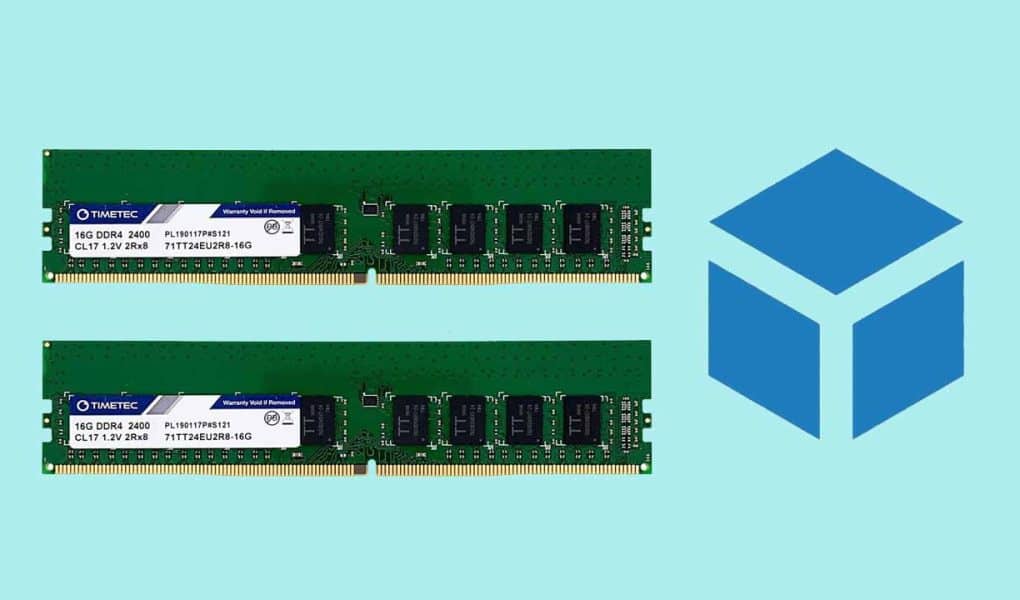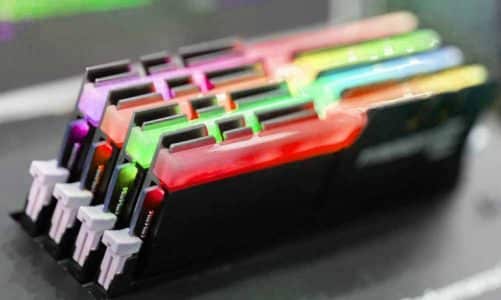Choosing the best RAM for a virtual machine is entirely different from a regular desktop PC. In regular desktop computers, RAM is the cheapest upgrade to boost the performance of your PC. On the contrary, upgrading RAM on a virtual machine is the second most expensive upgrade after storage.
It’s important to allocate the right amount of RAM to your virtual machine to enhance its overall performance. Furthermore, you have to choose the right type of RAM for your virtual machine server. In this case, you’ll have to opt for ECC RAM for your server instead of Non-ECC RAM (widely used in regular desktops and laptop computers),
What is ECC RAM?
ECC (Error Correcting Code) as the name suggests is the type of RAM that automatically detects any issue in your server and corrects them. This helps in smoother server operations as there are fewer chances of crashes or downtime.
Amount of RAM You Need for Virtual Machine
Having a lower amount of RAM would result in heavy page caching, which will then slow the performance of your server. On the other side, if you allocate too much RAM, then every paging file will try to swap a major portion of the memory on the host computer.
Technically, the amount of RAM that you need depends upon how many VMs you intend to run. Moreover, it also depends upon the type of workload that you expect out of each virtual machine.
As a general rule, it’s important to have at least 4GB RAM on the host if you want to allocate 3 to 4 virtual machines to it. Similarly, if you want to create more virtual machines, then you’ll have to add more RAM to your host machine.
Contents
List of the Best RAM for Virtual Machine
We’ve selected ECC DDR4 RAM modules for the purpose of this guide. As most systems are still using DDR4-supported motherboards because DDR4 modules are cheaper as compared to DDR5 modules, we believe going with these RAM modules would let you build a cost-effective server.
NEMIX RAM – Our Top Pick for Server PCs
Memory Size: 64GB (32GB x 2) | Type: DDR4 | Clock Speed: 2933 MHz
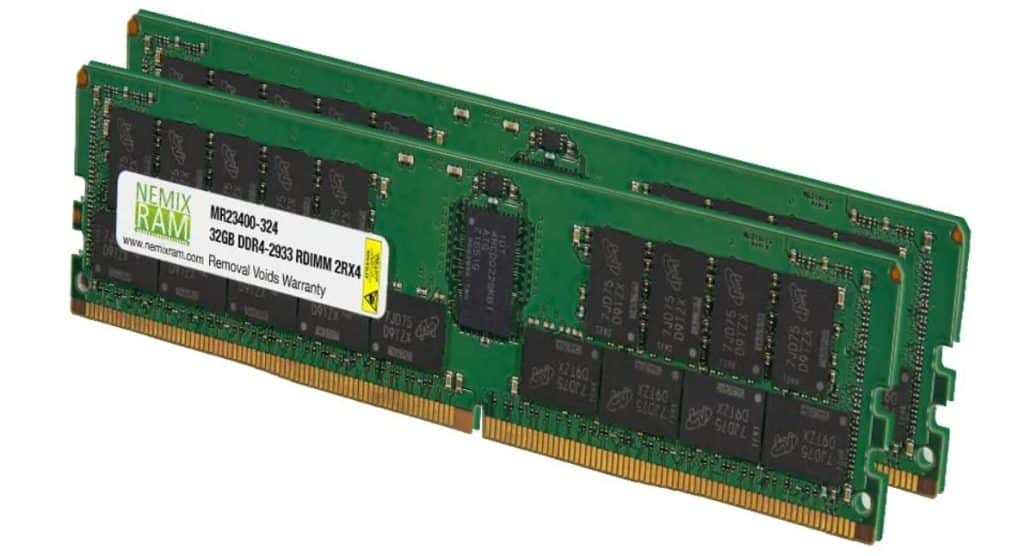
NEMIX RAM modules deliver the right value for the money whenever it comes to building a faster workstation machine. If you are planning to build a powerful virtual machine server, then 64GB of RAM would be enough to handle a decent number of virtual machines.
Both of these 32GB modules are clocked at 2933 MHz which is good enough to keep up with any task carried out on a virtual server. If you are building a cost-effective virtual machine server, then this is the most affordable memory to consider.
Although there are no fancy heat spreaders on top of them, they do not overheat after hours of running. But make sure you have plenty of cooling inside your PC case to be on the safe side.
Timetec Hynix IC – Best Value Memory for Virtual Host
Memory Size: 32GB (16GB x 2) | Type: DDR4 | Clock Speed: 2400 MHz
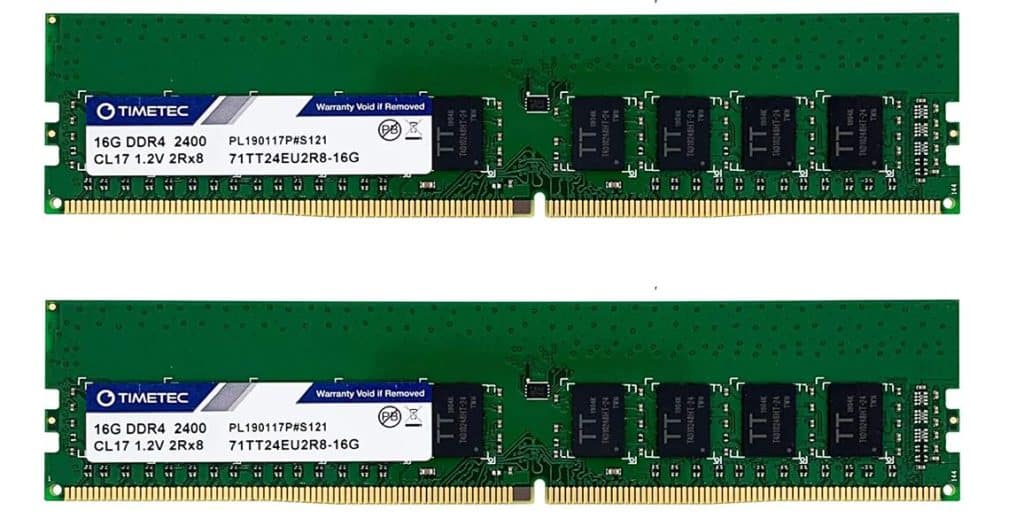
It won’t be wrong to say that the Timetec Hynix IC is the most budget-friendly ECC RAM to have for your home or entry-level server builds.
We used to have a lot of experience with Timetec Non-ECC modules in the past, but it looks like Timetec has continued the same trend with their ECC sticks to offer the most value for a lower price.
Now 32GB is a very limited amount from the commercial perspective, but it’s more than enough if you are building a small virtual server at home or office. With 32GB RAM, you can handle multiple virtual machines at a single time.
Just like the NEXIM RAM sticks, the Timetec Hynix IC makes use of unbuffered ECC to smoothly run your host server. But to be honest, there’s a narrow price difference between the Timetech Hynix 32GB and NEMIX 64GB RAM sticks.
Spending an extra $20 to $30 would for NEXIM 64GB module makes your virtual server future-proof for deploying more virtual machines to it. But it’s completely up to you, if you feel easygoing with 32GB memory, then Timetec isn’t a bad choice either.
Kingston Value – Cheapest RAM for Virtual Machine Server
Memory Size: 16GB (16GB x 1) | Type: DDR4 | Clock Speed: 2133 MHz
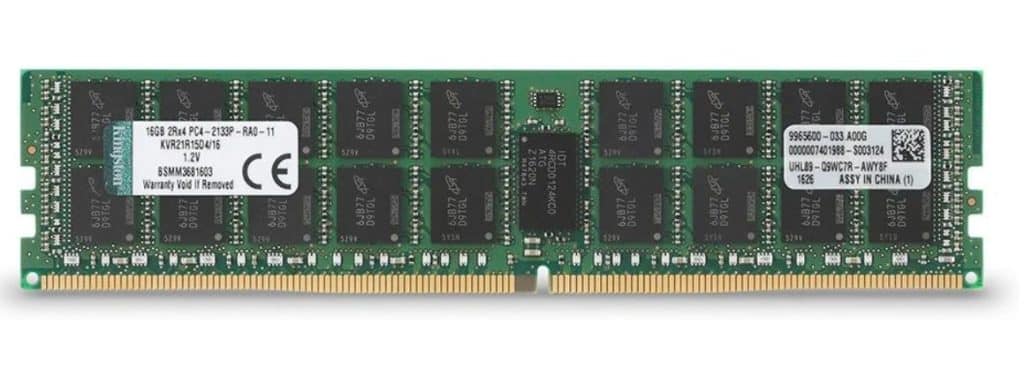
The Kingston Value is the cheapest RAM on our list. This 16GB RAM stick comes with a clock speed of 2133 MHz and shows up as a great deal for a home-based virtual network.
We are a huge fan of Kingston memories, especially when you have a tight budget on hand and need high-speed memory to build a workstation or virtual server.
At least for beginners who don’t want to waste a lot of money on buying an ECC memory, this is the cheapest to get under $50. Getting two of these 16GB RAM sticks would give you a total of 32GB capacity for just under $100.
Kingston Value is the fastest option on the list like the NEXIM and Timetec, but it’s enough to go with if you are dealing with virtual machines that are meant for entry-level or light-threaded tasks.
Important Things to Consider Before Buying RAM for Virtual Machine Host
Here are some of the key factors to keep in mind:
Capacity
It’s important to choose the right size or capacity of RAM based on your virtual machine workload.
For example, if you demand your virtual machines to do a lot of heavy rendering and stuff, then you’ll have to install higher-capacity RAM on your host.
Having enough RAM capacity will ensure that the tasks would run smoothly on the virtual machines connected to your host computer.
Clock Speed
Faster RAM would result in better response time between your host and virtual machines. So, go for memory modules that come with higher clock speeds.
Choosing a fast RAM will ensure that the virtual machine would be able to access and process data quickly, resulting in higher performance.
Type
The type of RAM that you’ll choose will decide how your host computer would respond to your virtual machines. There are hardly any machines left that are making use of DDR3 RAM modules. Current machines are making use of either DDR4 or DDR5 modules for higher performance.
FAQs
How much RAM should be allocated to a virtual machine?
Well, it depends upon the type of work that you demand from that virtual machine. But start from 1GB if the virtual machine is using a 32-bit operating system. Also, if the virtual machine is designed to process heavy workloads, then 4GB is a good allocation point.
Why is RAM important for a virtual machine?
It’s because where there’s a limited amount of RAM, then the host and virtual machine will struggle to get access to the free space available on the RAM. This may result in slower performance on both machines. Therefore, it’s important to allocate a specific amount of RAM to the virtual machine to keep things smoother.
Can I upgrade the RAM in a virtual machine, and if so, how do I do it?
Yes, you can upgrade RAM in a virtual machine. In order to increase the memory, you’ll need to edit VM’s settings when the machine is not running. It’s not possible to increase the memory while the machine is powered on.
Open the VM, go to the Virtual Machine menu and then select “Memory”. Now move the slider back and forth to allocate the amount of memory that you prefer.

Hi, my name is Masab, a die-hard PC enthusiast and founder of this blog. I love to share my prior experience with computers on this blog. Ask me anything about building a PC or troubleshooting PC errors, I’m here to help.

